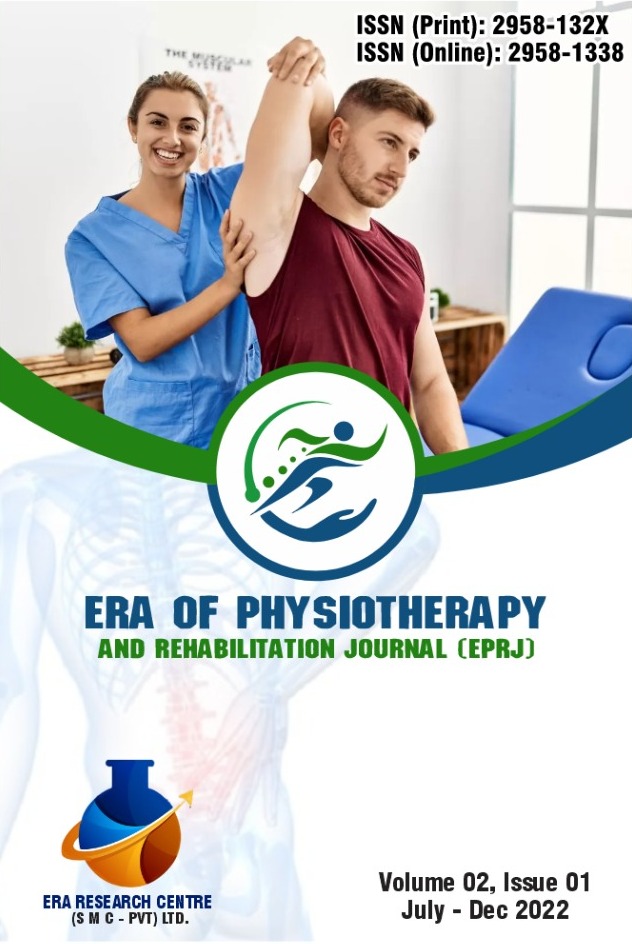Knowledge, Attitude, And Practices of Cardiopulmonary Rehabilitation Among Physiotherapists in Lahore
Cardiopulmonary Rehabilitation Among Physiotherapists
Keywords:
Knowledge, Attitude, PracticeAbstract
Background: Physical therapy is a rapidly growing discipline in the medical industry that deals with human movements, human functions and maximizing one's own body's physical potential. In the forms of promotion, prevention, intervention, or rehabilitation, it aids in enhancing quality of life. Numerous specialties of physical therapy exist, including cardiac, musculoskeletal, and neuromuscular physical therapy.
Objective: The objective of this study is to assess knowledge, attitude, and practices of cardiopulmonary rehabilitation among experienced physiotherapist and physiotherapy students in Lahore.
Methodology: After approval from the university ethical committee and IRB UOL, this cross-sectional study of 147 individuals was conducted. All population who presented cardiopulmonary disease were included in study. Demographic data of the all population was collected. KAP questionnaire was used. The survey was confidential. The three elements of the WHO's KAP framework served as the basis for the construction of the questionnaire. Two new parts were added: one discussed the difficulties physical therapists confront, and the other concentrated on PT's function in prevention initiatives. Before completing the questionnaires, participants asked for their written agreement and informed of the study's importance. The questions should contain all the questions related to data.
Results: For all the 147 participants were assessed for the knowledge assessment by using the KAP questionnaire. Participants have the score range of 49.66% for the knowledge. Overall scoring of the KAP questionnaire have the mean of 84.3741 and standard deviation 6.27368 for the 147 undergraduate and the post graduate therapists
Conclusion: This study concluded that knowledge is high about 49% (n= 73) participants with age 26-35 years old than a practice and attitude have percentage 12% (n=18) and 18% (n=27). Mostly were male participants. This study also confirmed that knowledge has impact on participants with cardiopulmonary rehabilitation among physiotherapist in Lahore and show the positive attitude towards the reduction of mortality and morbidity
Key words: Knowledge, Attitude, Practice, Cardiopulmonary Rehabilitation



